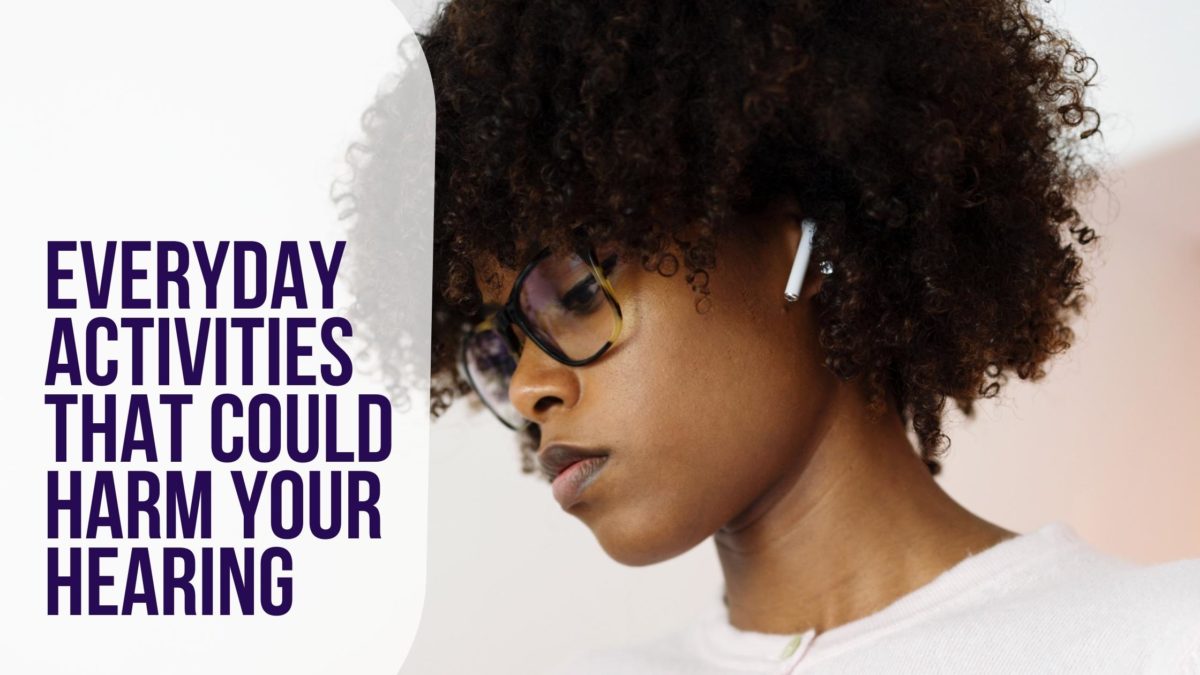Hearing loss is a pervasive health issue that impacts millions of people today. Nearly 1 in 6 people have some degree of hearing loss, a chronic condition that affects over 48 million people. A major cause of hearing loss is exposure to loud noise, something we are all exposed to regularly. Even if you think you are not absorbing loud noise, you likely are and don’t realize that it’s particularly hazardous for hearing. There are numerous everyday activities people participate in that could harm hearing. Learning about noise exposure and ways you can mitigate its potential harm can profoundly protect your hearing health.
How can loud noise affect hearing?
Loud noise is a common cause of hearing loss. One-time or consistent exposure to noise at higher levels can contribute to the development of hearing loss. Specifically, loud noise can damage hair cells in the inner ear. These sensory cells are responsible for converting incoming sound waves into electrical signals that then get carried to the brain. From here, the brain can further process these signals and assign meaning to them which is what allows us to understand what we hear. Loud noise can cause these cells to lose sensitivity, making it easier to die over time. Decreased sensitivity or the complete loss of these cells prevents them from performing an essential function. This makes it harder for the brain to process and understand incoming sound information, contributing to hearing loss.
Unlike other types of cells, sensory cells in the inner ear do not regenerate. There are thousands of hair cells in each ear that humans are born with. When they are damaged, this is irreparable as these cells do replenish and there are no medical interventions to restore them. This produces a chronic hearing loss, a medical condition that reduces an individual’s capacity to hear and process sound.
How loud is too loud?
Though it is commonly known that extremely loud noises – fireworks, sirens, standing near speakers, etc. – are dangerous for one’s hearing, there are seemingly regular noises that are also harmful to hearing health. Sound is measured in units known as decibels and noise above 85dB can be hazardous for hearing. This is the equivalent of busy city traffic, a hairdryer, or a vacuum cleaner. According to hearing health experts, people can be exposed to 85dB for 8 hours a day without harming their hearing. Going beyond this threshold though can be risky for hearing health.
The American Speech-Language-Hearing Association advises adjusting exposure time for noise that surpasses 85dB. Their guidelines for safe listening recommends that exposure time be reduced by half for every 3dB increase of noise levels over 85dB:
- 85dB: 8 hours
- 88dB: 4 hours
- 91dB: 2 hours
- 94dB: 1 hour
- 97dB: 30min
We are exposed to higher levels of sound for longer periods and may not be aware that it can be affecting our hearing health.
Everyday activities that could harm hearing
There is a wide range of daily activities that you could be engaging in that puts your hearing health at risk. This includes the following:
- Using household appliances. Several types of household appliances are close to or exceed 85dB:
- hairdryer, blender: 80-90dB
- a lawnmower, vacuum cleaner: 90dB
- power tools (hand drill): 100dB
- Work environments. The Hearing Health Foundation estimates that 30 million people are exposed to hazardous noise levels in the workplace.
- Social activities. This includes concerts, watching a sports game in a bar or an arena, gun ranges, etc.
- Electronic Devices: depending on the type, volume settings on headphones and earbuds can reach up to 100dB.
It is important to be aware of these noise levels and practice safety measures to protect your hearing.
Ways You Can Protect Your Hearing
Noise-induced hearing loss is preventable. There are simple safety measures you can practice to protect your hearing health including:
- Wear hearing protection: headphones, earbuds, and earmuffs are examples of hearing protection that reduces the amount of loud noise you absorb.
- Reduce noise exposure: you can do this in numerous ways including maintaining lower volume settings on electronic devices, avoiding loud settings, and measuring the noise in your environment by downloading an app and adjusting your exposure time accordingly.
- Take listening breaks: your ears and brain are constantly absorbing and processing sound. Give your auditory system small breaks throughout the day.
Contact us to learn more about how you can prevent noise-induced hearing loss and ways you can protect your hearing health.

